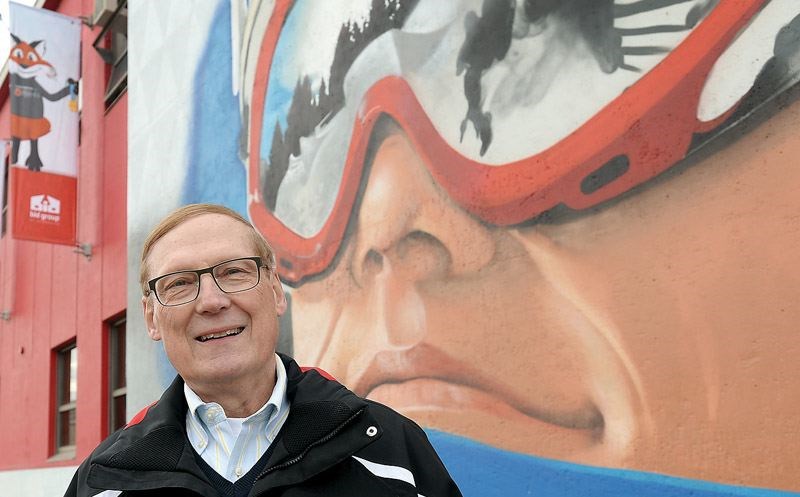In the lead up to and come down from the 2015 Canada Winter Games, there will be a lot of attention focused on the economic benefits and drawbacks for Prince George as the host city.
But the lingering impression for the residents of a city hosting such an event isn't necessarily something that can be quantified in dollars or hotel room bookings, said Harry Hiller, a professor of urban sociology at the University of Calgary.
Hiller has studied how (primarily) Olympic Games affect cities that take on the task of playing host. He's giving an hour-long lecture today at UNBC, in room 7-238 beginning at 3:30 p.m., on his years of research as the director of University of Calgary's Cities and Olympics project.
A resident himself during the Calgary Winter Olympics in 1988 and a part-time resident of Vancouver living adjacent to the athletes village in 2010, Hiller has had a front-row seat to the effect the Games has on the surrounding community. He has also travelled to locales such as London and Scotland to study the 2012 Summer Olympics and 2014 Commonwealth Games, respectively.
"I've been around the world with this topic but I've never observed it in a small city," said Hiller. "So this is what really intrigues me here about a smaller city with a lower profile Games and I'm very interested in learning about and seeing what kind of impact the Games have on this city."
But it was that first experience in Calgary that piqued Hiller's interest, after watching the people turn last-place athletes such as British ski jumper Eddie 'The Eagle' Edwards and the Jamaican bobsled team into folk heroes.
"It was done by the people and it wasn't planned - that was the interesting thing. This allowed me to say, 'well what we need to do is try to understand what happens in a host city as a result of hosting a major sport, mega event,' because it turns the city on its head," Hiller said.
During this afternoon's lecture, Hiller will present some of the data collected during the Vancouver Olympics, where residents were surveyed every few days during the duration of the Games. "And it's interesting to see how attitudes towards the Games increased. To the point that the opposition almost melted away," he said. "People really got into it."
Follow-up research up conducted one year after and four years after a Games indicate that the positive attitude remains.
"We asked a 'worth-it' question: Do you think it was worth it? And even four years later people are saying it was worth it," Hiller said. "The point is that it implies that what people got out of it is more than economic."
Though the 2015 Games are not on the same scale, an Olympiad sets the tone for what organizers of other sporting events attempt to achieve, he said, calling it a unique years-long mobilization of resources and people for a two-week period.
From what he has seen of the local organization and plan, Hiller said the elements are in place for the kind of event that leaves behind a positive taste in residents' mouths, such as a free arts festival in Canada Games Plaza.
"These change the rhythm of urban life, they change the routines. ... So now you've places that were used for traffic that are now used for people to walk around and enjoy each other and enjoy the atmosphere," he said. "[The research] is a whole different approach to the normal approach that focuses on 'well what's the economic impact and how is this going to sell our city for tourism?' and all that kind of thing. How does that change the way people view their own city."



